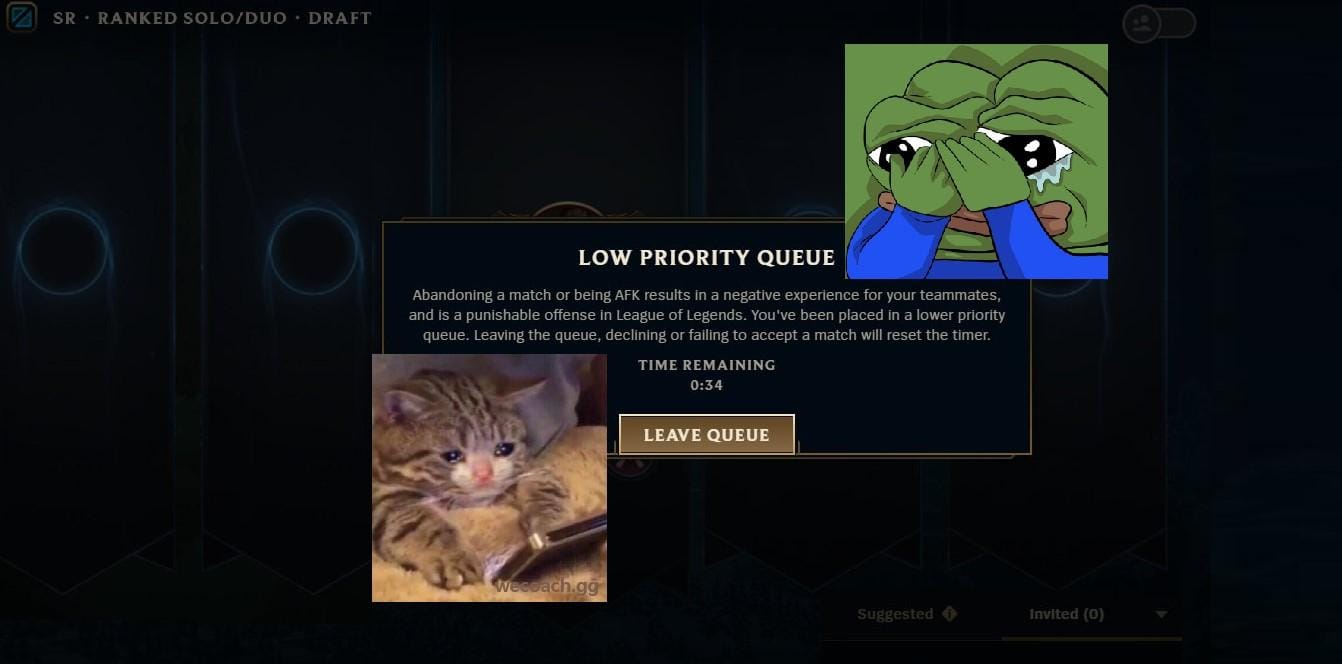

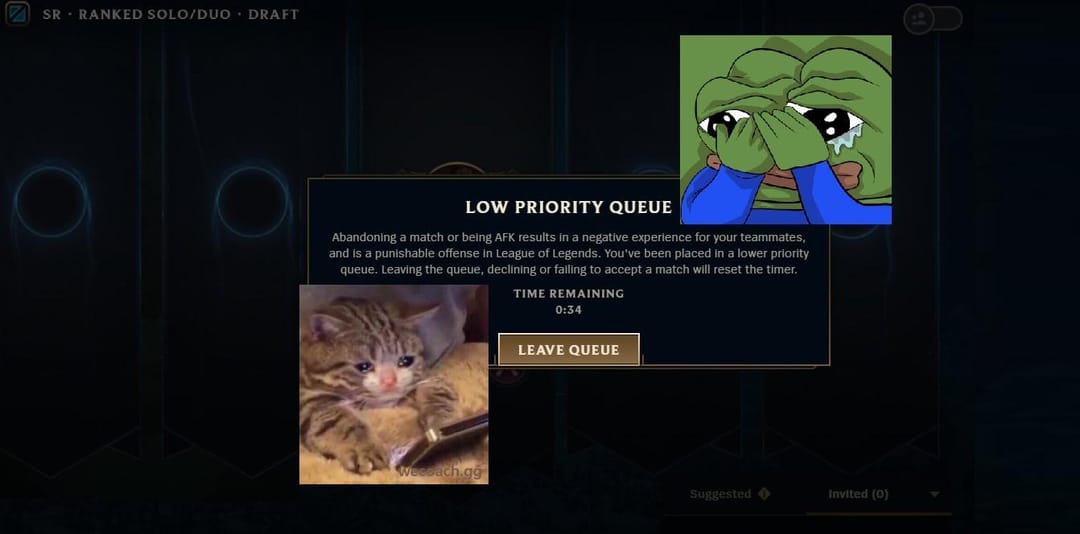
In League of Legends, maintaining a fair and enjoyable experience is critical, and Riot Games has designed an automated system called the Low Priority Queue to enforce just that. This system specifically targets players who frequently leave games early or go AFK (Away From Keyboard) during matches or leave games.
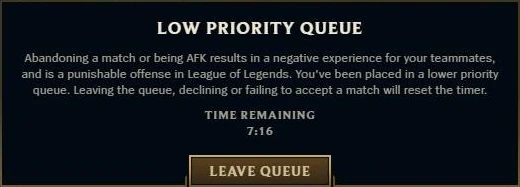
The Low Priority Queue in League of Legends is a penalty system that discourages players who frequently abandon games or remain inactive during gameplay. Players placed in Low Priority Queue face significantly longer queue times, making it inconvenient to join games quickly. Essentially, it serves as a deterrent by penalizing disruptive behavior, encouraging accountability, and ensuring a better gaming experience for the broader League of Legends community.
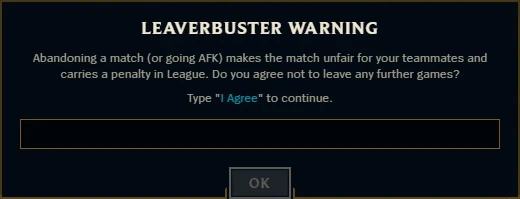
The LeaverBuster system continuously monitors player behavior within League of Legends. If you quit games early or frequently go AFK, LeaverBuster flags your account and places you into a separate queue—the Low Priority Queue—with extended wait times. By discouraging players from leaving games in League, Riot Games ensures that matches remain competitive and enjoyable.
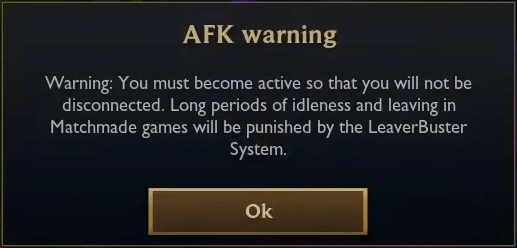
The LeaverBuster system issues a warning to players who are idle for 3 minutes and automatically removes them from the game after 5 minutes of inactivity. However, no penalties will be applied if a match ends prematurely due to server issues or if all players leave.
The severity of penalties in the Low Priority Queue depends on how often and seriously you've disrupted games. Penalties include queue delays, number of games impacted, and even queue lockouts, structured in escalating tiers:
Repeatedly leaving games in League of Legends results in harsh penalties, including losing League Points (LP) in ranked matches. Repeated offenses escalate these low priority queue tiers, reflecting Riot Games' low tolerance for ongoing disruptive behavior.
The Leaver Queue, officially known as the Low Priority Queue, generally lasts for about five to six games. However, if you continue to leave games early, penalties can escalate. This means longer wait times—up to 20 minutes per match—and possible lockouts lasting anywhere from one day to two weeks.
Your time in the Low Priority Queue typically spans five to six matches, though this can extend if you repeatedly leave games. Queue delays usually begin around 5 minutes per game and can increase significantly, reaching delays as long as 20 minutes if the issue persists.
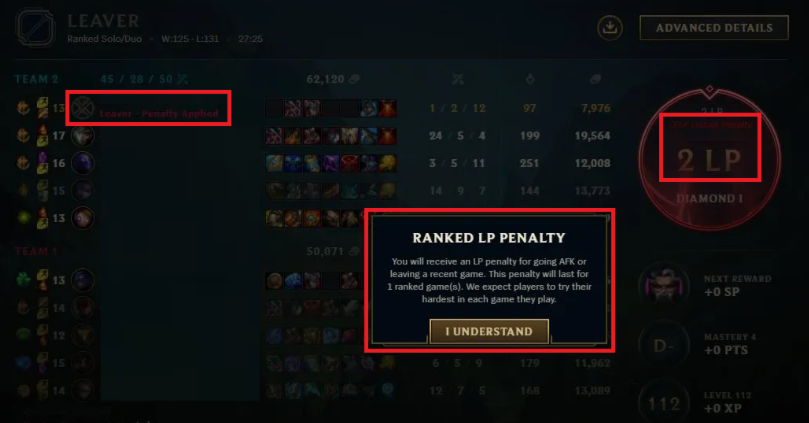
There are additional punishments for leaving a ranked game. The first time you dodge, you'll lose 5 LP. For any additional dodges within the next 12 hours, you'll lose 10 LP each time. These penalties can stack but are capped at a maximum of -100 LP. Additionally, dodging a ranked match counts as a loss in your match history and applies a ranked LP penalty that temporarily reduces your LP gains for your next few ranked games.
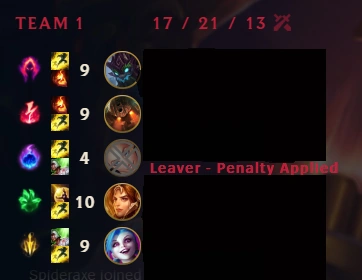
Being placed in a low priority queue isn't merely an inconvenience; it can significantly impact your progression. Players in low priority might lose League Points (LP) in ranked games, experience reduced XP gains, and face dips in their Matchmaking Rating (MMR). Thus, quitting games early or going AFK not only affects immediate gameplay but also costs you league points and slows down your overall League of Legends experience.
The process to exit the low priority queue depends on your consistency. Typically, players need to complete at least five matchmade games without leaving or going AFK. Keep in mind, declining or dodging a match invitation resets your progress, meaning you'll still be in the low priority queue even longer. Finishing the next five games consecutively without disruptions is the key to getting back to your regular queue.
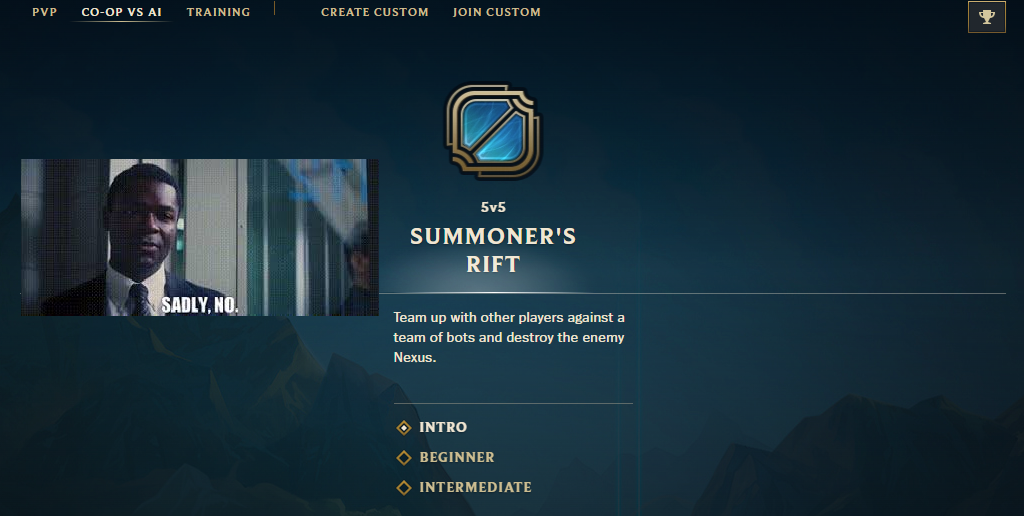
No, playing games in other modes will not shorten your Low Priority Queue time. For example, playing co-op vs. AI games won't reduce your ranked matches' low-priority queue time. You must complete the necessary number of games in the specific queue you're assigned to without prematurely leaving any matches. Keep in mind, declining or failing to accept a match invitation will reset your progress.
The ultimate goal of the low priority queue is simple: to maintain a fair and enjoyable environment within League of Legends. The Low Priority Queue is a penalty system in League of Legends that upholds game integrity by ensuring all matches offer equal opportunity and competitive fairness. By imposing penalties on disruptive behaviors, Riot encourages positive interactions and responsible gameplay within the League of Legends community.
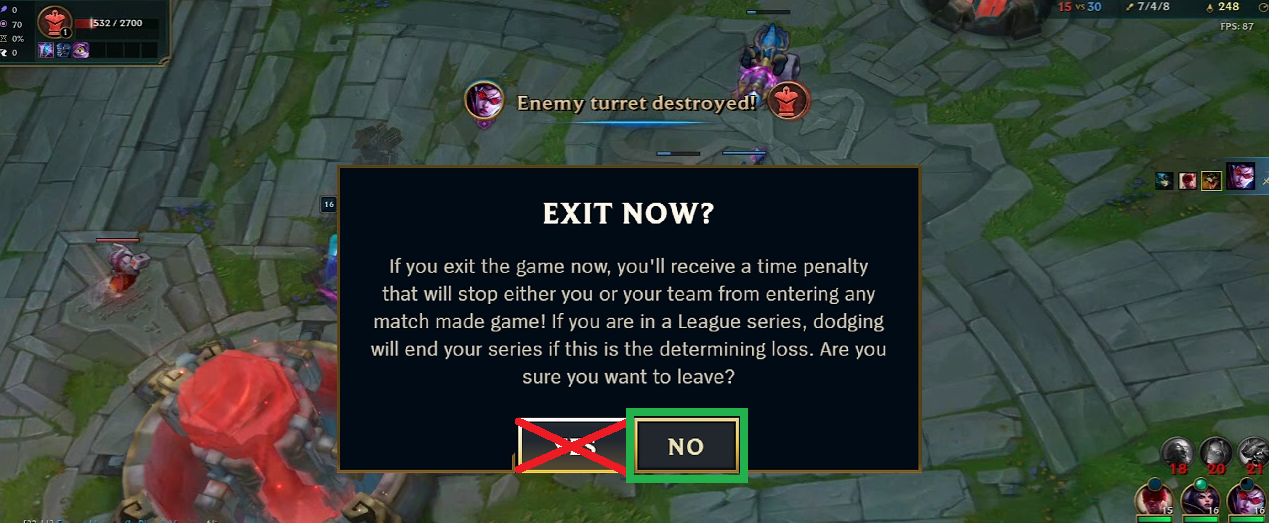
If you frequently find yourself in the low priority queue, improving your gameplay can dramatically help. Professional League of Legends coaching can boost your skills, enhance your confidence, and lower the likelihood of rage-quitting or prematurely exiting matches. Better performance leads to less frustration, reducing the temptation to leave a game.
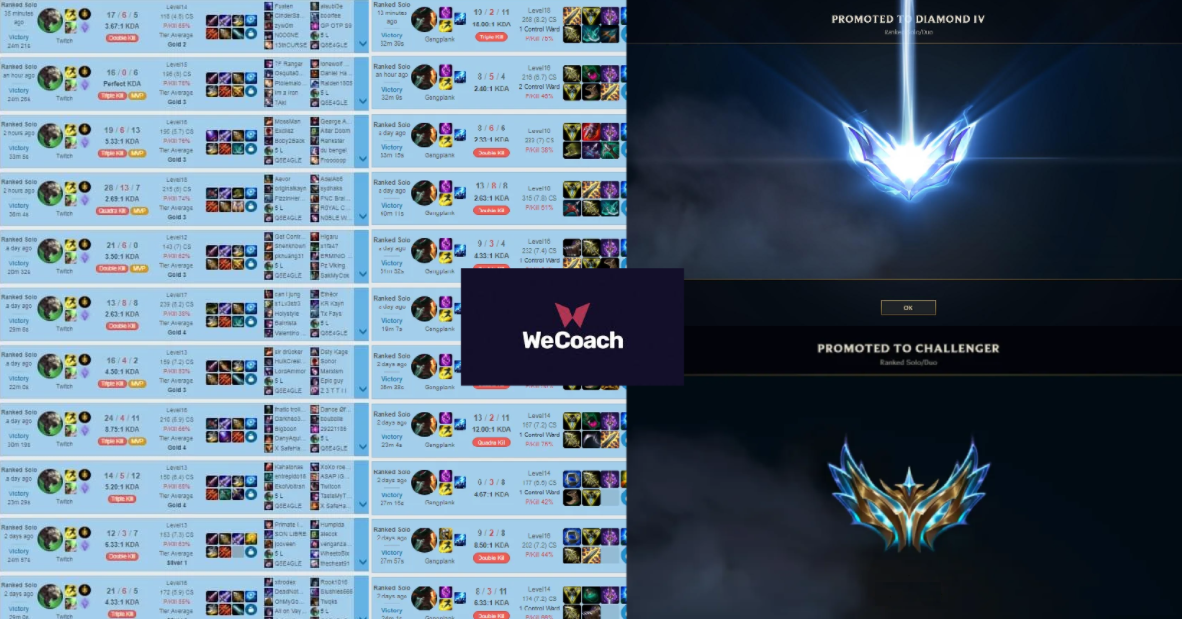
The low priority queue serves as an essential tool for Riot Games to cultivate a respectful and competitive gaming environment. Understanding and respecting this system benefits both individual players and the broader community. Commitment, sportsmanship, and accountability aren't just ideals—they're expectations within League of Legends.

Roger is an esports journalist and content writer specializing in League of Legends guides, patch analysis, and coaching insights.
View all articles